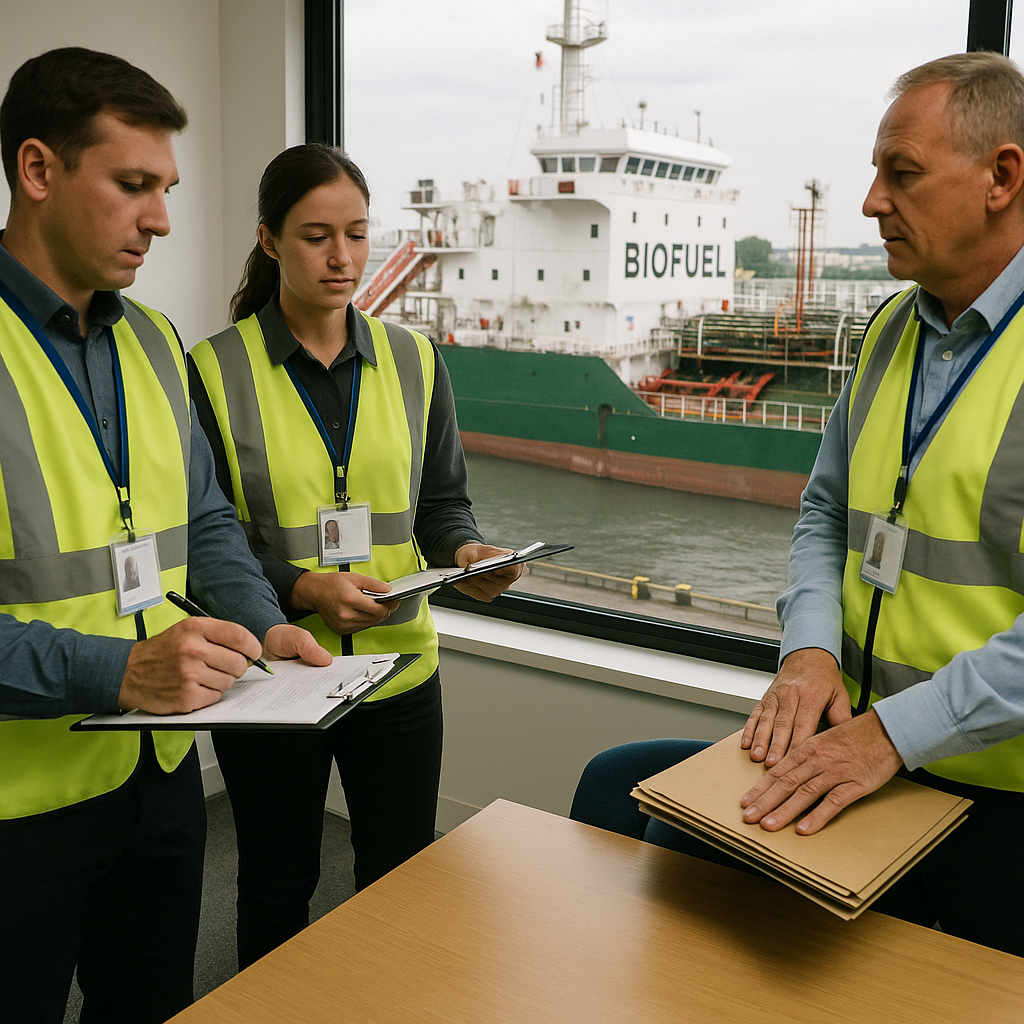
The Emerging Role of Tracers in Combating Biofuel Fraud
As the maritime industry increasingly turns to biofuels to reduce its carbon footprint, the integrity of these fuels has become a critical concern. Recent trials have shown that tracers—chemical markers added to biofuels—could play a pivotal role in preventing fraud, ensuring that the fuels used are both authentic and environmentally friendly. This development is particularly timely, as the industry faces mounting pressure to meet international emissions targets and navigate complex regulatory landscapes.
The Growing Threat of Biofuel Fraud
Biofuel fraud poses a significant challenge to the maritime sector, undermining efforts to transition to greener energy sources. Fraudulent activities can range from mislabeling conventional fuels as biofuels to diluting biofuels with cheaper, non-renewable alternatives. Such practices not only compromise environmental goals but also create unfair market conditions for companies investing in genuine sustainable solutions.
The maritime industry is no stranger to regulatory scrutiny, as evidenced by recent actions such as the U.S. Coast Guard’s arrest of a vessel captain for operating under the influence (Infomarine). This incident underscores the broader regulatory environment where compliance and enforcement are paramount. In this context, the introduction of tracers offers a promising solution to enhance transparency and accountability in biofuel usage.
How Tracers Work
Tracers are unique chemical compounds that can be added to biofuels at various stages of production or distribution. These markers are designed to be detectable in minute concentrations, allowing for precise identification and verification of the fuel’s origin and composition. By incorporating tracers, stakeholders can ensure that the biofuels being used meet the necessary sustainability criteria and are not tampered with during transit.
The implementation of tracers in biofuels is not without its challenges. It requires collaboration across the supply chain, from producers to end-users, to establish standardized practices and technologies for tracer detection. However, the potential benefits in terms of fraud prevention and market integrity make it a worthwhile pursuit.
Industry Adoption and Trials
Several industry giants are already exploring the use of tracers in biofuels. According to Infomarine, tech and industry leaders are engaged in discussions about integrating advanced technologies, such as nuclear propulsion, into maritime operations. This indicates a broader trend of innovation and technological adoption within the sector, which could facilitate the implementation of tracers.
Trials of tracer technology have shown promising results, demonstrating the feasibility of detecting and verifying biofuel authenticity in real-world conditions. These trials are crucial for building confidence among stakeholders and paving the way for wider adoption. As the technology matures, it is likely to become an integral part of the industry’s strategy to combat biofuel fraud.
Regulatory and Geopolitical Implications
The adoption of tracers in biofuels could have significant regulatory and geopolitical implications. As countries and international bodies tighten emissions regulations, the ability to verify the authenticity of biofuels will become increasingly important. Tracers could provide the necessary assurance to regulators that the fuels being used comply with environmental standards.
Geopolitically, the use of tracers could help stabilize biofuel markets by reducing the prevalence of fraud and ensuring a level playing field for all participants. This could be particularly beneficial in regions like Bangladesh, which, according to Infomarine, remains one of the lowest-placed markets for shipbreaking. By promoting transparency and accountability, tracers could help improve market conditions and foster sustainable development.
Analyst Perspectives
Industry analysts are cautiously optimistic about the potential of tracers to transform the biofuel market. One viewpoint suggests that while the technology is promising, its success will depend on widespread industry buy-in and the establishment of robust regulatory frameworks. Another perspective highlights the potential for tracers to drive innovation and investment in biofuels, as companies seek to differentiate themselves through sustainable practices.
Conclusion: Navigating the Future of Biofuels
The introduction of tracers in biofuels represents a significant step forward in the fight against fraud. In a base scenario, the successful implementation of tracers could lead to greater transparency and trust in the biofuel market, supporting the maritime industry’s transition to sustainable energy. In a bullish scenario, tracers could catalyze broader technological advancements and regulatory reforms, positioning biofuels as a cornerstone of the industry’s decarbonization strategy. Conversely, a bearish scenario could see challenges in adoption and standardization, limiting the impact of tracers and leaving the industry vulnerable to continued fraud.
Ultimately, the successful integration of tracers will require collaboration across the maritime sector and beyond. As the industry navigates this complex landscape, the promise of tracers offers a beacon of hope for a more sustainable and equitable future.
Sources (selection):
- https://infomarine.net/en/technology/58-green-energy/37592-uscg-arrests-captain-for-operating-vessel-under-the-influence.html
- https://infomarine.net/en/technology/58-green-energy/37590-gms-bangladesh-remains-the-lowest-placed-market.html
- https://infomarine.net/en/technology/58-green-energy/37591-tech-and-industry-giants-in-talks-for-nuclear-propulsion.html
